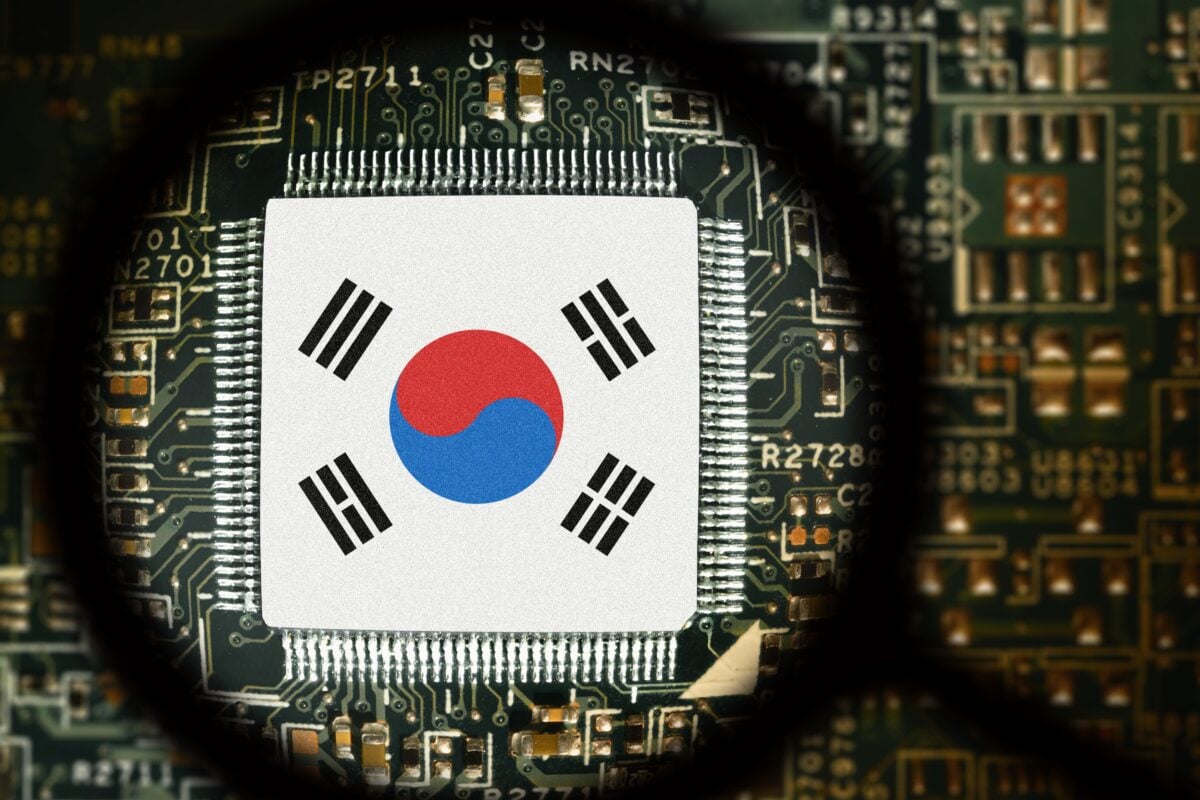TLDRs:
Contents
- South Korea launches a five-year, $72B plan targeting AI, semiconductors, biohealth, and renewable energy leadership.
- AI ‘expressway’ to accelerate innovation, backed by AI Framework Act taking effect January 2026.
- Designated “megaspecial zones” to boost startups, VC funding, and regional tech growth.
- Energy transition goals align with carbon neutrality, supported by deregulation and capital market transparency reforms.
South Korea has announced an ambitious five-year economic blueprint aimed at cementing its position as a global technology and energy powerhouse.
The State Affairs Planning Committee unveiled the plan at Cheong Wa Dae, outlining strategies to dominate artificial intelligence (AI), next-generation semiconductors, and renewable energy while bolstering capital market transparency.
AI ‘Expressway’ and Global Tech Leadership Goals
Central to the plan is the creation of an “AI expressway”, a nationwide digital infrastructure designed to accelerate AI innovation and adoption across industries.
The government will also expand support for independent AI research and invest heavily in talent training programs to secure South Korea’s competitive edge.
To strengthen its global standing, the blueprint aligns with the upcoming AI Framework Act, scheduled to take effect on January 22, 2026. This legislation will set transparency requirements for high-risk AI systems and establish adaptive governance mechanisms, ensuring that rapid technological advancement is matched with robust regulatory safeguards.
Massive $72B Fund for Future Industries
The government has proposed a 100 trillion won (US$72 billion) national fund to drive research, development, and commercialization in future-focused industries. This includes semiconductors, AI, biohealth, and renewable energy technologies.
Funding will be channeled toward startups, small businesses, and venture capital projects, particularly in designated “megaspecial zones”, regional hubs for innovation with relaxed regulations to foster faster growth.
In the biohealth sector, the government sees an especially strong opportunity, with Korea’s smart healthcare market projected to grow from $1.38 billion in 2023 to $2.78 billion by 2032.
Energy Transition and Carbon Neutrality
On the energy front, South Korea is committing to an accelerated shift toward renewable power generation. The blueprint emphasizes green energy deployment, carbon neutrality initiatives, and infrastructure upgrades to support sustainable growth. This aligns with the nation’s long-term goal of balancing economic expansion with environmental responsibility.
Regulatory reforms will extend to renewable energy and biohealth, easing compliance burdens to encourage innovation while safeguarding public interests.
Policymakers say these measures will help integrate clean energy solutions into the industrial ecosystem without slowing technological progress.
Capital Market Reforms and Transparency Measures
Alongside its tech and energy ambitions, the plan addresses financial sector governance. New policies will combat unfair trading practices, boost market transparency, and enhance investor confidence.
The government believes these steps will create a healthier investment environment, essential for attracting both domestic and international capital into future industries.
With policy development moving in lockstep with legislative preparation, South Korea’s approach appears more cohesive than past innovation drives that struggled under unclear legal frameworks. This synchronization is seen as a critical advantage in executing such an expansive national strategy.
Industry and Policy Leaders React
Industry stakeholders have welcomed the announcement, noting that coordinated investment, regulation, and talent development could accelerate Korea’s rise as a hub for AI and semiconductor excellence. Venture capital leaders in Seoul predict that the combination of public funding and deregulation will spark a surge in high-tech startups over the next three years.
Observers say the blueprint sends a clear signal: South Korea intends not just to participate in the global tech race, but to set the pace.


